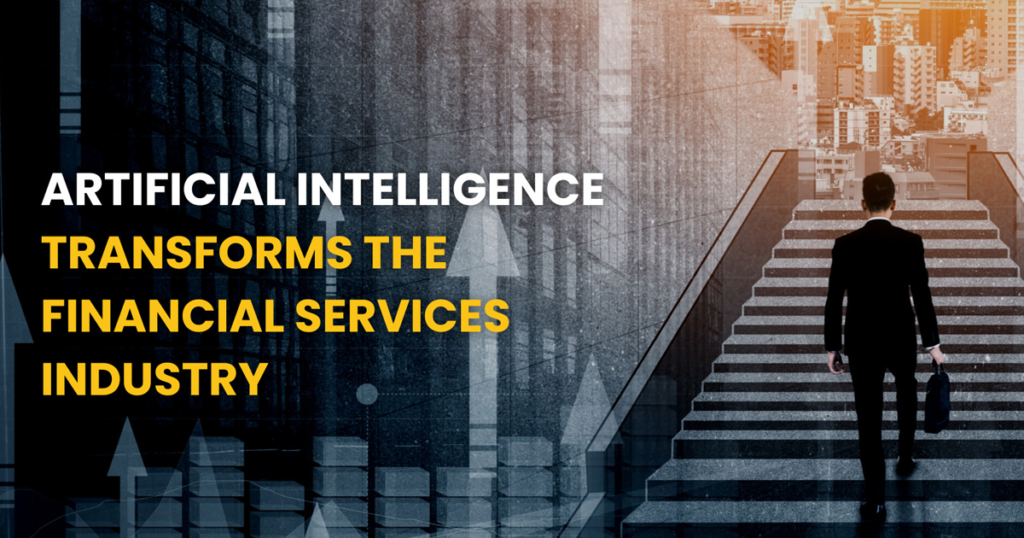What has caused the AI boom in financial services to happen?
AI has progressed from a popular theme in novels to a genuine reality. In fact, many economies around the world are benefitting greatly from AI’s presence. However, one sector that has seen particularly significant growth and advantages is the financial services industry.
With the rise in the number of people and professionals using the financial services industry, automation has become a priority. This desire to automate important tasks is motivated by the use of professional financial services. Artificial intelligence will be used broadly as a result of automation.
In other areas, AI has already helped with large amounts of data. In finance, it’s important to gather and process huge amounts of data correctly. Working with data in a multitude of formats and styles is a difficult undertaking even for people with a data mindset. If AI accelerates and simplifies the collection and analysis of huge amounts of data, it might be a game-changer in the finance industry.
Business days can be quick, efficient, and economical if employees are well-prepared.
What has caused the surge in AI in financial services?
The biggest factor driving the increase in Artificial Intelligence (AI) adoption within banking, financial services, and insurance (BFSI) is the current age of data analysis. The quantity of data we can access today has grown to such an extent that we have more to investigate than ever before. As a result, companies are forced to seek out more accurate analytics and insights. Because of the AI’s ability to gather all the data we can find in the ‘Big Data’ age, it puts it all together to their benefit.
The development of infrastructure is another contributor to the rise of AI. Finance departments now frequently have high-end computers with impressive hardware and software capabilities. Thanks to cloud storage, AI plays an important role in the field. In the past, the finance sector has always desired AI; now, we have the ability to use it (and at a reasonable price).
The regulatory changes within the sector are the other key reason for the decline. Current regulations require companies to disclose as much financial information as possible. AI provides objective facts without bias or personal opinion, which drives an increase in competitors using AI in the financial services industry. In addition, if one company does not use AI, it risks losing consumers to its primary competitor.
These factors are in near-perpetual evolution, so new values and opportunities will arise as time goes on.

What is the role of AI in the finance sector?
We are already seeing AI used within the sector in various ways. Intelligent process automation (IPA) has become essential to getting through those time-consuming but essential tasks. This can help with setting up client portfolios, offering insight in live chat to gauge interest, or providing automation regarding factors like accounting.
AI can help with everything from automatically determining a client’s risk due to the information provided. It could also give customers more detailed information, just the facts, without any marketing jargon or sales language. Customers can therefore receive quick, honest, and non-bias insight into the questions they might ask of a financial services firm.
Artificial intelligence will also be crucial when it comes to fraud detection. By knowing what to look out for as red flags, AI can play arguably an even bigger role in spotting fraudulent use of such services in the years to come.
The use of AI in financial services is not without its pitfalls.
There is no doubt that AI is becoming an integral part of the sector, but there are still some hurdles. The largest issues are ‘black box’ and ‘black swan’ events. Many companies may believe that, in the long run, AI will replace human workers and professionals. That might sound like a good financial decision, but it won’t happen anytime soon. AI is a complement, not a substitute for a human professional. It can assist them in focusing on the right areas in the workplace and boosting creativity and analytical ability. Even though AI is still a long way from replacing human professionals, it can still assist them in focusing on the right areas.
Finding the best ways for humans and AI to work together is a challenge. This will help reduce risk, improve decision-making, and unlock the sector’s best business opportunities in time.
The financial services industry is among the fastest growing industries worldwide. The possibilities are endless when paired with the potential benefits that AI can bring. While challenges exist, so do incredible benefits. Like every other industry, the challenge comes from finding the balance between using AI and relying on it.

